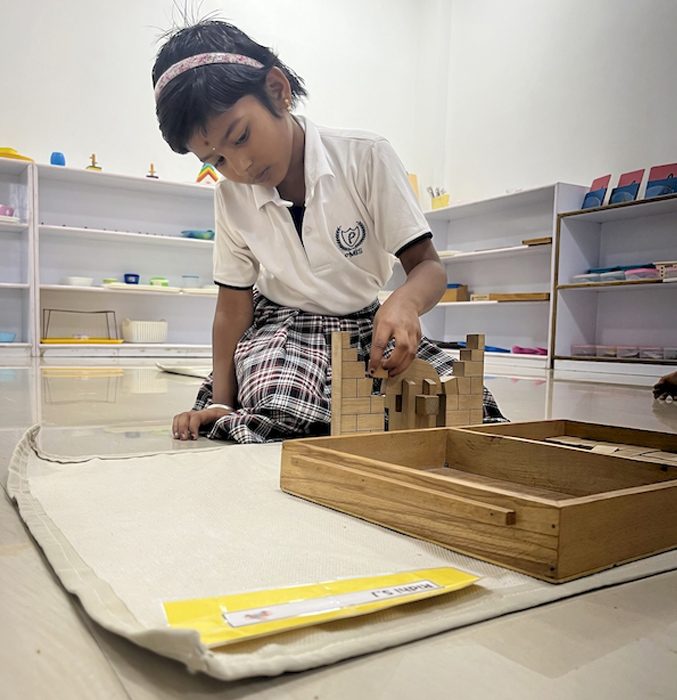Montessori Children's House

The Montessori Children’s House offers a warm, peaceful, and nurturing preschool and kindergarten environment where respect between teachers and children is deeply embedded. Through grace and courtesy exercises, children are taught to navigate conflicts, engage politely in diverse situations, and be kind and helpful to one another. This cultivates a strong sense of community and belonging among the young learners.
In this spacious, child-sized environment, children thrive in multi-age classrooms where older students naturally develop leadership skills by guiding and supporting their younger peers. The younger children benefit from having role models, creating a cooperative and inclusive atmosphere. Even the shyest child is encouraged to step into leadership roles, fostering confidence and self-esteem.

The Montessori Children’s House is a warm, peaceful, and welcoming Montessori preschool and kindergarten program. There is a deep sense of respect between the teachers and the children. Through grace and courtesy exercises, we teach children how to problem-solve conflicts, how to interact politely in various situations, and how to be kind and helpful to their friends. The result is a cohesive community of young children.
The spacious child-sized environment and multi-age Montessori classroom encourage older children of the environment to foster leadership skills. The younger children benefit from having role models in the classroom. In the Children’s House, even the shy 5-year-old is encouraged to practice a leadership role. The younger children will look up to the elder kid and ask for their help and assistance. This process is the confidence builder children need in their development.
The Montessori classroom is carefully designed with natural lighting, soft colors, and uncluttered spaces, creating a serene atmosphere conducive to focused, peaceful learning. Children work independently or in small groups, choosing their activities from accessible shelves, promoting independence and responsibility. Every item has its place, instilling a sense of harmony and order that inspires both comfort and productivity.
Program Options:
Half-Day Program: 8:45 AM to 12:30 PM
Full-Day Program: 8:45 AM to 2:45 PM
For Kindergarten students aged 4 and 5 who are ready for a longer school day
Practical Life Activities:
Children engage in tasks like sweeping, washing, and snack preparation, which develop coordination, concentration, and responsibility. These activities build mastery, self-confidence, and a strong work ethic.
Sensorial Learning:
Montessori materials stimulate the child’s senses of sight, touch, sound, taste, and smell. This sensorial exploration is key to understanding and organizing their world, laying the groundwork for abstract thinking.
Mathematics:
Using hands-on materials like rods, beads, and sandpaper numerals, children gain a tangible understanding of mathematical concepts such as addition, subtraction, multiplication, and division. The materials are self-correcting, encouraging independent problem-solving and a deep grasp of numbers.
Language Arts:
With tools such as sandpaper letters and alphabet cut-outs, children learn the sounds of letters and progress to forming words and sentences. As they develop fine motor skills through practical life exercises and sensorial work, they also strengthen their writing and reading abilities.
Culture And Science:
Children explore geography, science, art, and music through engaging with maps, flags, artifacts, and cultural celebrations. These subjects introduce children to the diversity of the world, fostering an appreciation for different cultures and environments.
This enriching environment supports the child’s holistic development, offering a strong foundation for learning during these formative early years.
